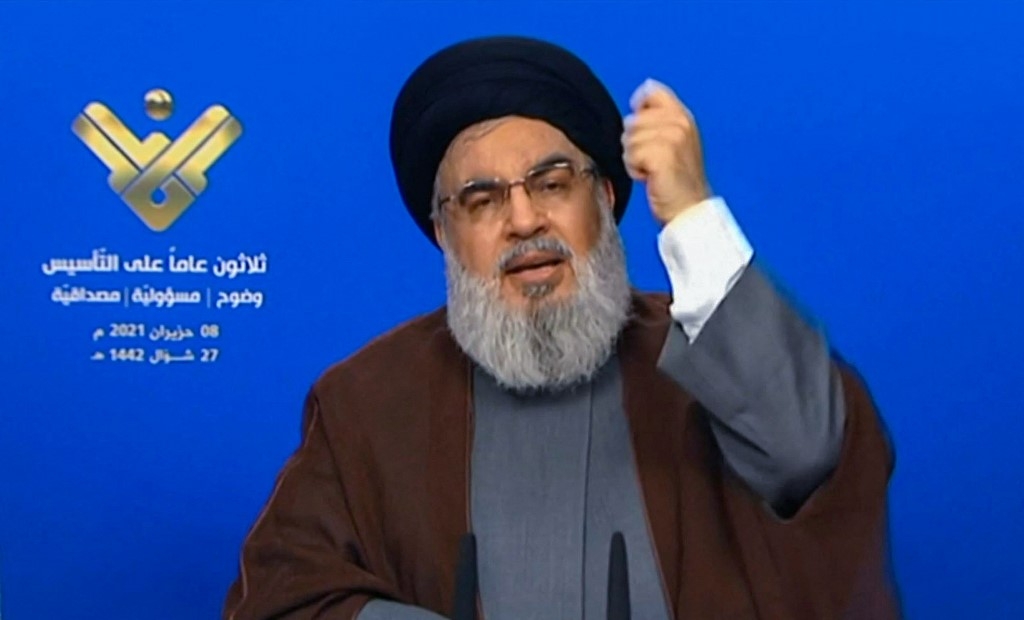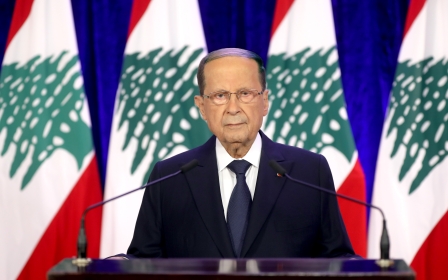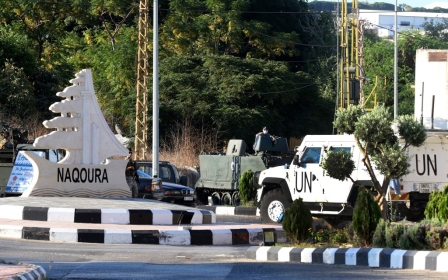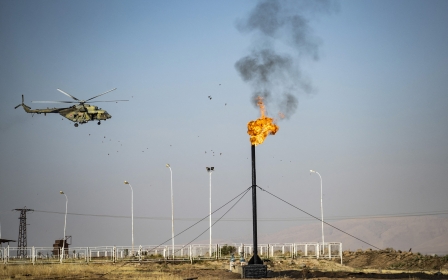Lebanon's Hezbollah warns Israel against drilling in disputed maritime border

The leader of Lebanon's Hezbollah has warned Israel against drilling for oil and gas in the disputed maritime border area between the two countries until the issue is resolved, and said his movement would take action if it did so.
"If the enemy thinks they can act as they please before reaching a solution to this issue they are wrong," Sayyed Hassan Nasrallah said in a televised speech on Friday.
New MEE newsletter: Jerusalem Dispatch
Sign up to get the latest insights and analysis on Israel-Palestine, alongside Turkey Unpacked and other MEE newsletters
Lebanon's cabinet had raised the question with the United Nations Security Council through its permanent representative Amal Mudallali, and with others in the international community, after Israel granted US oilfield services group Halliburton an offshore drilling contract in the Mediterranean, asking to clarify whether the drilling would take place in disputed areas.
Lebanon and Israel are in dispute over the delineation of their territorial waters, and negotiations between the old foes could lead to Lebanon being able to unlock valuable gas reserves amid its worst-ever financial crisis.
Israel already pumps gas from huge offshore fields.
Shuttle diplomacy
The two countries have been holding on-off US-mediated talks since October to try to resolve the issue.
"I will not state any positions on this as I don't want to complicate the negotiations," said Nasrallah.
"But for sure, the resistance in Lebanon at the right time, through following this issue, when it finds that Lebanese oil and gas is in danger in the disputed area it will act accordingly."
Amos Hochstein, the US mediator for the indirect talks, visited Beirut earlier this week and said a period of shuttle diplomacy would precede any return to indirect talks between the two countries similar those held in October 2020 at the United Nations' peacekeepers' base in Lebanon's Naqoura.
Middle East Eye delivers independent and unrivalled coverage and analysis of the Middle East, North Africa and beyond. To learn more about republishing this content and the associated fees, please fill out this form. More about MEE can be found here.





